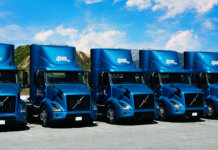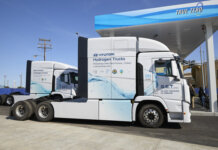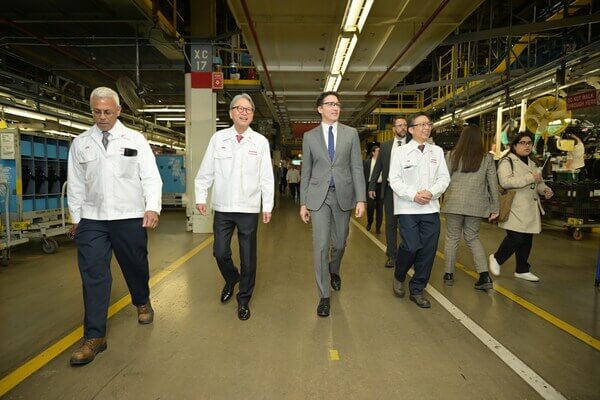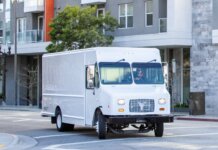Honda Motor Co. Ltd. plans to build a comprehensive electric vehicle value chain in Canada with an approximate investment of $11 billion U.S. ($15 billion Canadian), including investment by joint venture partners, to strengthen its EV supply system and capability to prepare for higher EV demand in North America going forward.
The company has begun evaluating the requirements to build an innovative and environmentally responsible Honda EV plant and a stand-alone Honda EV battery plant in Alliston, Ontario. The proposed Honda EV value chain will also include a cathode active material and precursor (CAM/pCAM) processing plant through a joint venture partnership with POSCO Future M Co. Ltd. and a separator plant through a joint venture partnership with Asahi Kasei Corporation.
Honda expects that EV production will begin in 2028. Once fully operational, the EV plant will have a production capacity of 240,000 EVs per year, and the EV battery plant will have a capacity of 36 GWh per year.
Besides securing the current employment level of 4,200 associates at its two existing manufacturing facilities in Ontario, Honda estimates it will add at least 1,000 new associates for the EV and EV battery manufacturing facilities. Investment in the new facilities will also create significant spinoff jobs across all sites, including in the construction sector.
The firm has begun evaluating the scope of its investment and completing negotiations with its joint venture partners. This work is expected to be completed during the next six months, and more details will be shared then.
To support this project, Honda is collaborating with the governments of Canada and Ontario to drive innovation in low-emissions manufacturing by accessing performance-based initiatives available through the federal government’s new Investment Tax Credits and provincial direct and indirect incentives.
Striving to realize carbon neutrality for all its products and corporate activities by 2050, Honda has set a goal to make battery electric vehicles (BEVs) and fuel cell electric vehicles (FCEVs) represent 100% of vehicle sales by 2040. To achieve this goal, Honda will continue offering products in this electrified era globally, including North America, its largest market.
“Honda is making progress in our global initiatives toward the realization of our 2050 carbon neutrality goal,” says Toshihiro Mibe, global CEO of Honda. “In North America, following the initiative to establish our EV production system capability in the U.S., we will now begin formal discussions toward the establishment of a comprehensive EV value chain here in Canada, with the support of the governments of Canada and Ontario. We will strengthen our EV supply system and capability with an eye toward a future increase in EV demand in North America.”
Photo credit: CNW Group/Honda Canada Inc.





